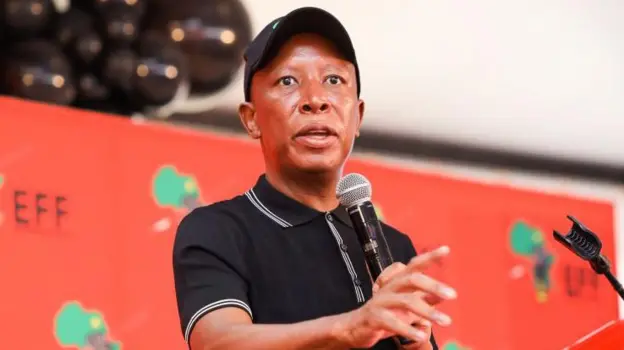South African opposition leader Julius Malema has revealed that he was denied a visa to travel to the United Kingdom, where he was scheduled to speak at the prestigious Africa Together Conference at the University of Cambridge on 10 May.
According to Julius Malema, the UK government had “no substantial justification” for the refusal, describing it as a blatant “attempt to silence a dissenting political perspective.” The outspoken leader of the Economic Freedom Fighters (EFF) is known for his sharp criticism of Western powers and his calls for the nationalisation of white-owned land in South Africa.
A leaked letter addressed to EFF senior official Godrich Gardee, written by UK High Commissioner to South Africa, Antony Phillipson, confirmed that the Home Office was unable to process Julius Malema’s visa application in time. Mr Phillipson said the delay was due to the “necessary steps required to consider visa applications and the unfortunate timing of some recent UK Bank Holidays.”
Julius Malema Applied on Time
Despite Julius Malema and his delegation applying well in advance — some opting for priority processing — the visa decision was only communicated hours before their scheduled departure. “This is unacceptable and spineless,” Malema stated on X (formerly Twitter), adding that they were promised the matter would be resolved.
The EFF also issued a statement accusing the UK High Commission of deliberately stalling the application to prevent Julius Malema from speaking at the event hosted by Cambridge University’s African Society. The party believes this was a politically motivated move to block Malema’s critical voice on global platforms.
Antony Phillipson personally apologised for the visa delay and confirmed that the Home Office would refund the application fee. However, the damage had already been done, with Julius Malema missing a key opportunity to address issues affecting the African continent from his perspective.
While the UK Home Office declined to comment on individual cases, the incident has sparked debate over political censorship and the treatment of controversial figures like Julius Malema by Western institutions.
Source – BBC

